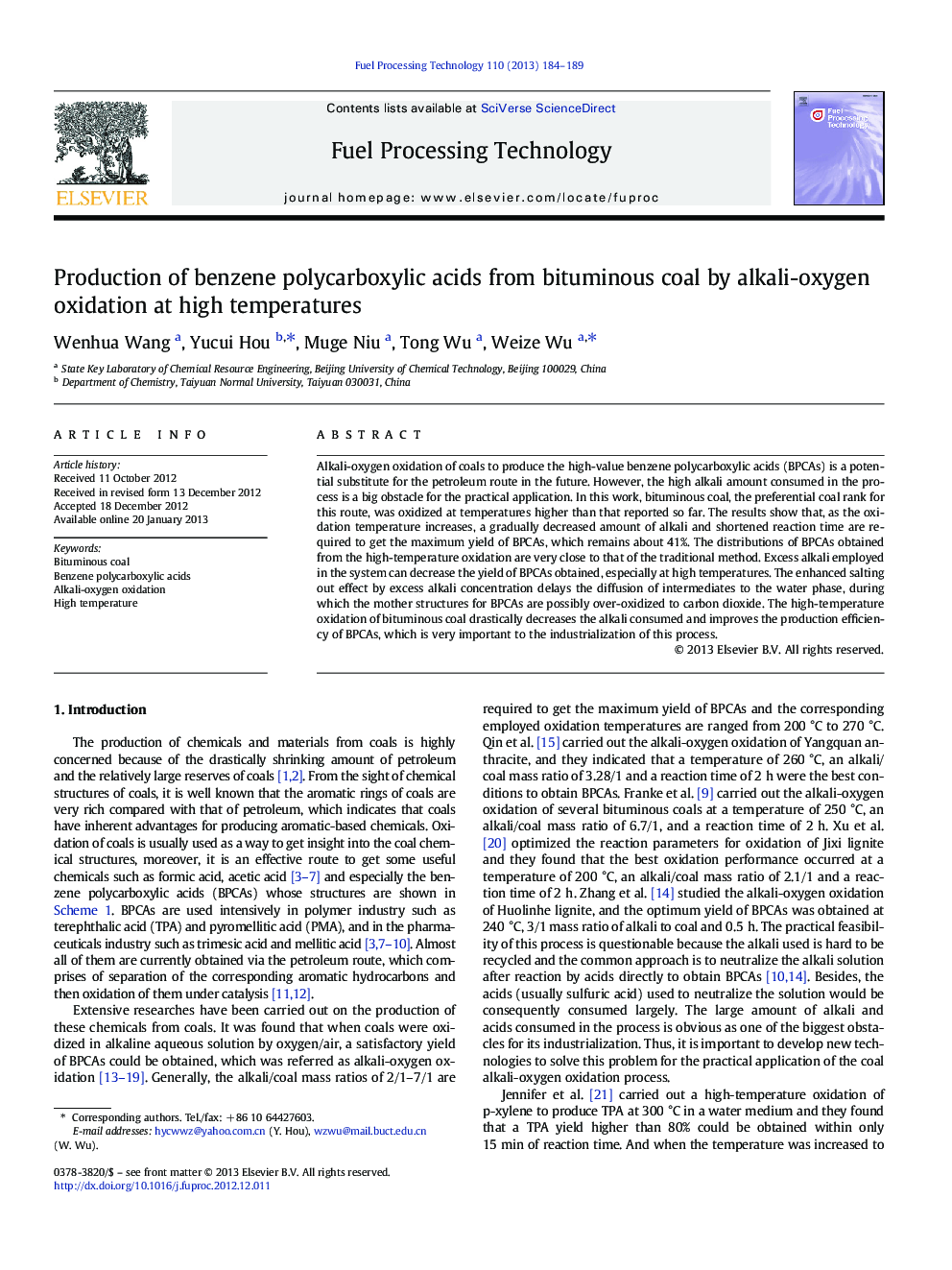| Article ID | Journal | Published Year | Pages | File Type |
|---|---|---|---|---|
| 209996 | Fuel Processing Technology | 2013 | 6 Pages |
Alkali-oxygen oxidation of coals to produce the high-value benzene polycarboxylic acids (BPCAs) is a potential substitute for the petroleum route in the future. However, the high alkali amount consumed in the process is a big obstacle for the practical application. In this work, bituminous coal, the preferential coal rank for this route, was oxidized at temperatures higher than that reported so far. The results show that, as the oxidation temperature increases, a gradually decreased amount of alkali and shortened reaction time are required to get the maximum yield of BPCAs, which remains about 41%. The distributions of BPCAs obtained from the high-temperature oxidation are very close to that of the traditional method. Excess alkali employed in the system can decrease the yield of BPCAs obtained, especially at high temperatures. The enhanced salting out effect by excess alkali concentration delays the diffusion of intermediates to the water phase, during which the mother structures for BPCAs are possibly over-oxidized to carbon dioxide. The high-temperature oxidation of bituminous coal drastically decreases the alkali consumed and improves the production efficiency of BPCAs, which is very important to the industrialization of this process.
► Production of benzene polycarboxylic acids from bituminous coal at high temperatures. ► Amounts of alkali and acid consumed in the process were decreased drastically. ► Mechanism of alkali for the alkali-oxygen oxidation of bituminous coal was studied. ► Production efficiency of benzene polycarboxylic acids was highly improved.
